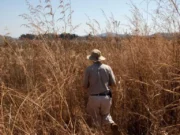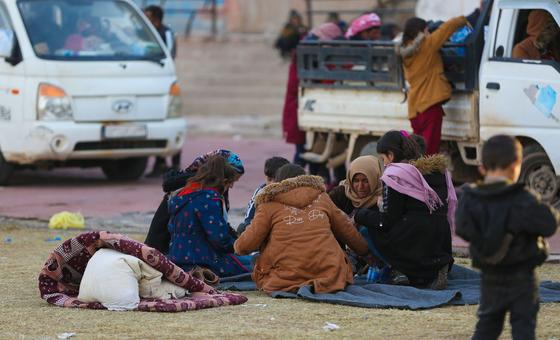UN humanitarians and their partners, have distributed food assistance to nearly 3 million people in Syria, since late November, the UN relief agency said on Tuesday.
“More than 2.5 million people across the country, including people in camps, collective centers and host communities, have received bread between Nov. 27 and Jan. 6,” the UN Office for the Coordination of Humanitarian Affairs (OCHA) said. Over 300,000 people have received other food assistance, including ready-to-eat rations, hot meals, and food baskets. However, OCHA said they continue deliveries only as far as security and logistical conditions permit. Portions of northeast Syria present notable challenges.
The office said in Syria’s northwest, partners support farmers and breeders with agricultural inputs, such as fertilizer and start-up grants, to help small and medium enterprises. “The insecurity and displacement in November and December, coincided with the agriculture planting season,” OCHA said. “According to the caretaker authorities, only 40 percent of the usual amount of wheat has been planted in parts of Syria this season. Farming households are in dire need of agricultural input, including seeds, fertilizers and animal feed. Rainfall has also been lower than average and erratic over the past few weeks.”
Humanitarian partners warned that without additional support, wheat and barley production in 2025 will be severely impacted in a country, where 15 million people are already food insecure.
OCHA said the challenge for humanitarians in the northeast is access. The internal crossing connecting Menbij to areas east of the Euphrates River, including Ar-Raqqa, remains closed, preventing the movement of goods and people, including aid workers. However, access has not been disrupted in other areas in the northeast. Humanitarian shipments from the capital of Damascus to Qamishli City in al-Hasakah Governorate continue, according to OCHA.
Several UN agencies, have also received supplies through the Tabqa crossing point in Ar-Raqqa Governorate.








































